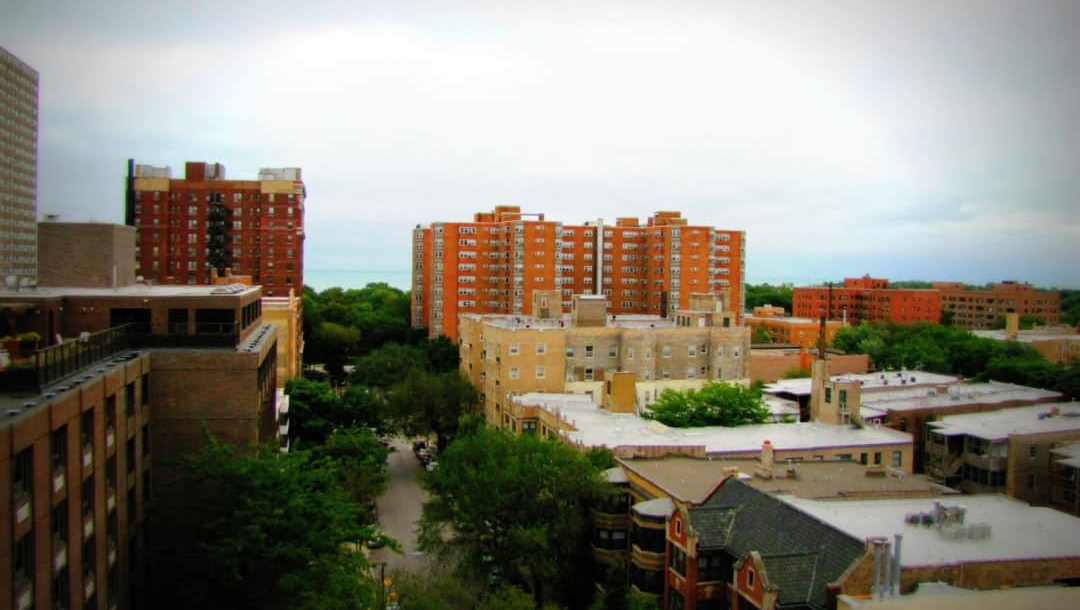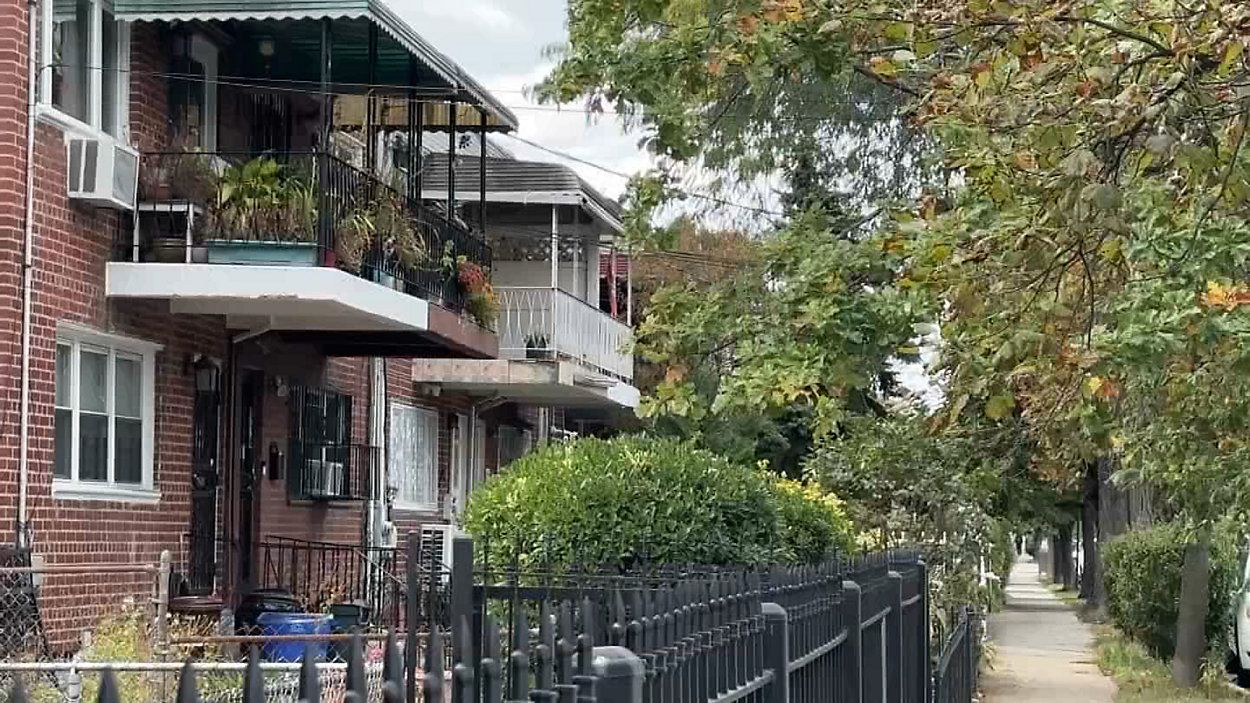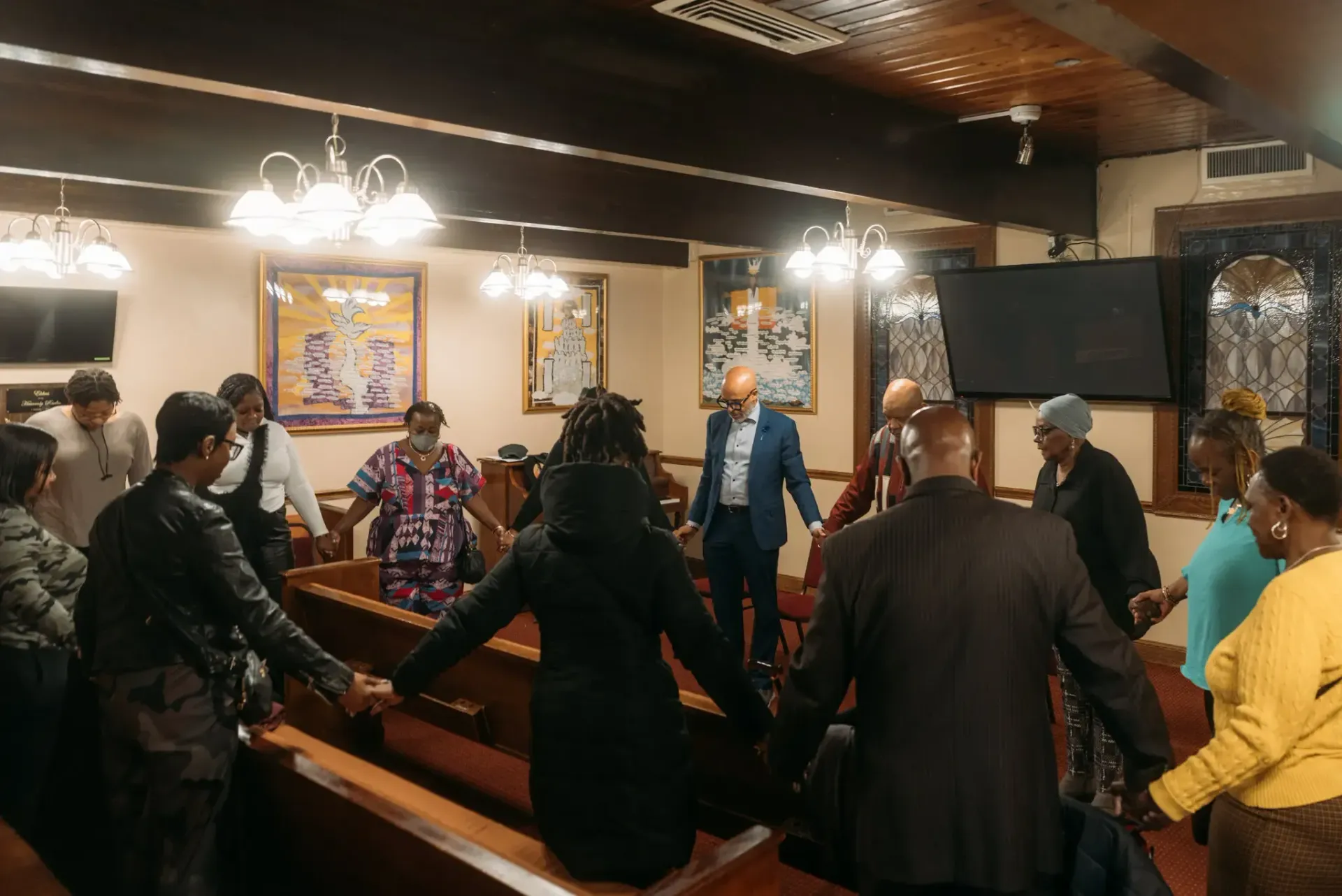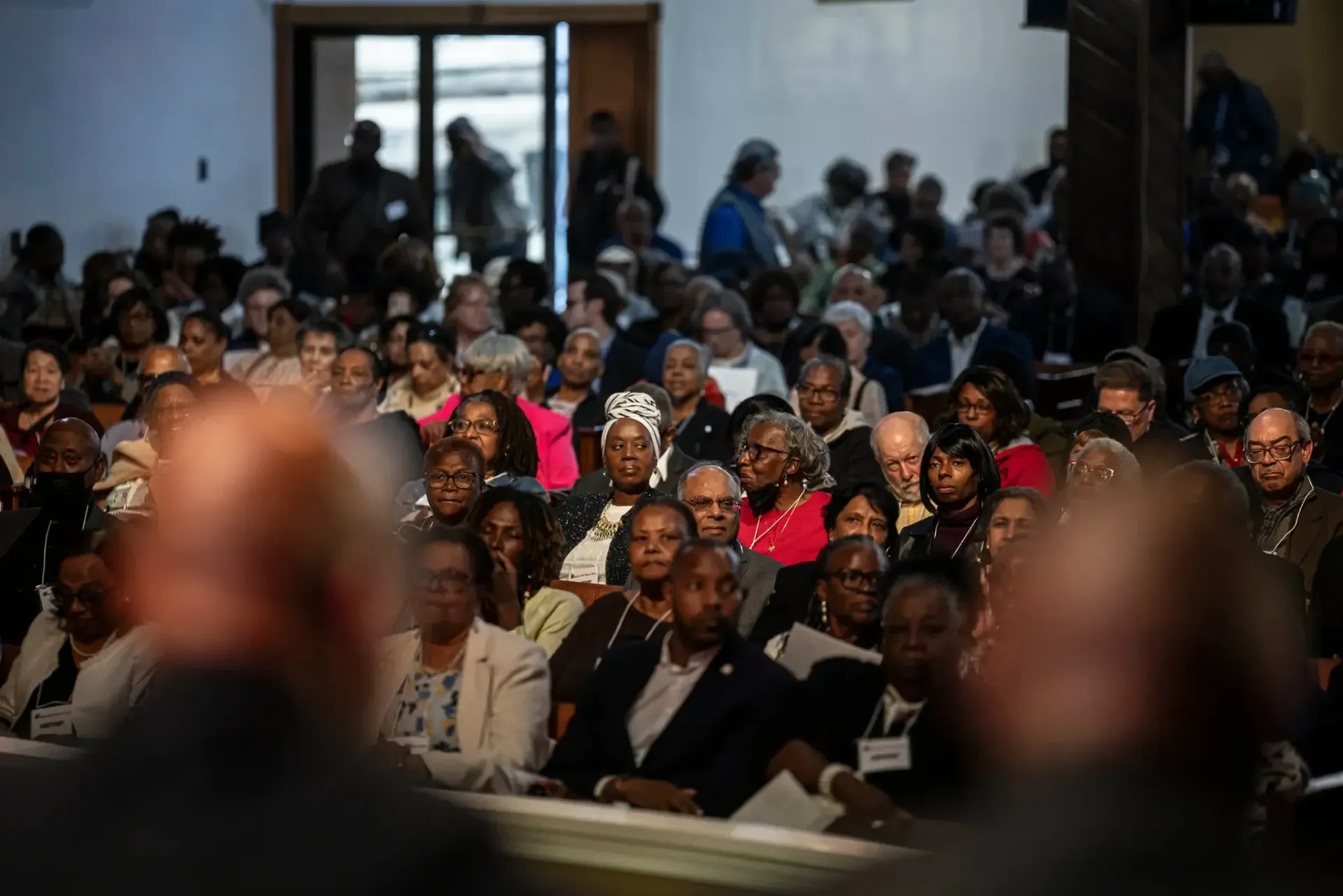Brownsville tenants team with developers and community to change their lives
Jacqueline (Jackie) Melendez had enough. The elevators didn't work, and she complained. But it was more than that. Melendez had an 8-month-old, and a 3-year-old battling leukemia.
Living on the ninth floor of the Riverdale Osborne Towers in Brownsville, steps from the Rockaway Ave. 2/3 subway, Melendez had to take the working elevator in the building next door to the top floor, climb to the roof and walk across to her building, and down a flight of stairs with two children in her arms, just to arrive at her front door.
"Here I was with a child in chemotherapy, praying when I walked into my building that the elevator would work," says Melendez. "I should have been praying for my son to live. Something wasn't right."
After she complained, the building management, an organization that seems to have later disbanded, tried to evict her. City marshals came to her apartment. Melendez, an organized woman who had never been late on rent, was forced to go to court in downtown Brooklyn and carry her rent receipts with her at all times as proof of good standing.
That wasn't the worst of it. In 2003, drug dealers ruled the four-building complex, where most of the 524 residents pay a portion of their income as rent through the subsidized Section 8 program. The courtyard out front was an asphalt field. Some apartments had kitchens without refrigerators or stoves. Water leaked from the roof into apartments below.

Lindsay's job is to help members of EBC's groups take action on issues important to them. He remembers early meetings with Melendez. "When I first came to see her, the drug dealer working that building opened the door for me," says Lindsay. "When Jackie described the living conditions, I told her it would be hard, but if we got a plan of action, we could make a change."
That plan of action included building a team, but doing it quietly so nobody knew.
"There was already a tenant association, but they were in with the landlords," says Lindsay. "We had to make sure that the powers that be didn't know what we were doing so we could work behind the scenes. Otherwise, they would make things very hard for our group."
Twenty-four tenants set up a formal meeting with building management. At the meeting, Melendez and Villanueva presented the building manager with formal complaints including leaks, mold, apartments without refrigerators, and elevator problems.
"We gave her a test," says Melendez. "Ten apartments that had such horrible living conditions that they would be violating city and federal housing standards if they weren't repaired. Of course, they did nothing. Eight apartments they didn't touch at all, and two of them, they did 25% of the work and stopped."
Placing management responsible, the tenants noticed that the landlord, a nonprofit group consisting of several owners, was beginning to do the minimal amount of work necessary to escape prosecution.
"We were at a crossroads," says Lindsay. "I gave the tenants two choices: Either we fight this legally, which can be costly and take years, or we try to find a buyer for the complex who can come in, take over and clean this up. That's what we opted to do."
Lindsay remembers both comical and tragic things that happened when they went to seek a buyer.
"At one of our meetings to discuss crime, automatic weapons were shot in the courtyard below us," he says. "We had to duck, and some of the parents in the meeting had children out there. On another occasion, new fridges meant for tenants were sold on the street by the building's super. One time, we were arguing with [the manager] when she started yelling at us while running away. She kept pressing the elevator button, but of course the elevator wasn't working and never came."
None of this was funny to lower Park Ave.-based Community Preservation Corp. (CPC), one of the biggest builders, developers and lenders for affordable housing in the history of New York City. The top brass from CPC Resources, the organization's development arm, met with Lindsay and the tenant group because of its strong relationship with EBC.
After hearing the story, CPC Resources did what it does best. It structured a financial deal with a partnering local landlord who had experience dealing with tough apartment complexes, and began the process of simultaneously ridding it of crime and purchasing the property.
"Our mission is to renovate and restore communities," says Michael Lappin, president & CEO at CPC Resources and Community Preservation Corp., who has run both organizations for over 30 years.
"It's very simple. These people weren't receiving basic living services. No one should live in fear. This complex wasn't being run efficiently. This could be profitable and be a model for other places going through similar problems."
Lappin contacted Demetrios Moragianis, a development partner and property manager with experience working in tough neighborhoods. His team worked with the 73rd Precinct and representatives from the city Department of Housing Preservation and Development's crime task force to make several arrests, ensuring that gang and drug elements could not operate on-site. One day, more than 26 arrests were made.
After working with New York Sen. Charles Schumer and U.S. Rep. Yvette D. Clarke to ensure federal aid, Lappin and company were able to purchase the property. Since 2006, they have poured in over $39 million in development and renovation costs ($36 million came from federal and state tax credits). They installed new windows, two new roofs, three new boilers, replaced all elevators, gave new kitchens to every tenant, ensured all intercoms were in working condition, installed security cameras and hired security guards.
Moragianis' team built gates around the property, so that all visitors had to enter through a new lobby. A new management office and security center had new tenant mailboxes. The one-story brick building became the center for all management, rent-paying, maintenance and safety operations. By 2010, the Riverdale Osborne Towers were safe, with all building operations functioning almost perfectly with few tenant complaints.
'We're not a charitable institution," says Lappin, whose group is a partner in the Parkchester complex in the Bronx and the developer for the conversion of the Domino Sugar factory in Williamsburg to an affordable and market-rate mixed-use housing complex. "It's about making the economic system work to better people's lives and for us and our partners to make some money as well. That's what this organization is here to do."
Melendez and her group of fellow tenants live different lives now. Renovations were completed in December 2009. The asphalt field is a modern playground where kids can play. All elevators work. Hallways are clean. There are no leaks. People come and go as they please, never in fear. Intruders from the surrounding area can no longer waltz through the courtyard anytime they like.
Rents have hovered around $710 for a one-bedroom and $810 for a two-bedroom. There is a waiting list for the complex, and nonsubsidized tenants have sought apartments there. Melendez is saving money to buy a home nearby in a complex developed by CPC. She walks with a hop in her step, proud of what she's done, always looking forward.
"This taught me to never give up," says Melendez, who lost her son to cancer and now works for the city Department of Education. "I know I'm low-income, but it still shouldn't be okay to accept that I should be ashamed to have visitors.
"I'm a Garifuna woman, meaning I'm African and Latino. Like other less-privileged women, we're taught to accept our circumstances. Well, that's not okay. That's not how I want my daughter to grow up. I want her to be proud and educated and remember what we did here." For info on CPC, go to communityp.com.
***
HOW TENANTS CAN ORGANIZ
Jacqueline Melendez with Grant Lindsay
Is your landlord or building owner violating any housing acts? If you think so, here are tips on what you can do to fight back, legally and efficiently.
1- Build a team. Talk to other tenants who are equally fed up. Gather a list of leaders inside the building.
2- Do it quietly. Some managers and landlords will attempt to evict tenants who complain and disrupt any attempt to organize. Set a meeting.
3- Think of a test. Ask landlords to repair something that is a basic living right, like working bathrooms, leaks or elevators. Check the New York City Department of Housing Preservation Web site for a list of what landlords must do to keep up to code. nyc.gov/hpd
4- Approach the building manager. Set a formal meeting with building management to document the request for repairs. Get all facts together and a list of demands. Make sure you role play the meeting in advance so that you are prepared. Give them a strict but fair deadline to complete repairs.
5- Evaluate. Monitor their work. On the day of the deadline, assess the repairs to determine if the demands have been met. If they have, rejoice and ask for more. If they haven't, get tougher.
6- Involve potential allies. Contact HPD or the U.S. Department of Housing and Urban Development in Washington, D.C. Certain regulators inside these organizations are there to ensure landlords maintain proper building codes and services.
7- Don't give up. If things appear slow, remember, you've come this far.
8- Decide whether the best course of action is court or letting the city or federal government help. If the landlord has met requirements but things are still in disrepair and living conditions below standards, tenants need to decide if they want to take the landlord to court. Keep holding meetings to hold them accountable.
9- Let the landlord know you're not going away. Any communication with the landlord that firmly states you know your rights as tenants could lead to quicker repairs.
10- Keep the faith. Stay organized, and keep pressing for change. As Melendez says, "The battle never ends." Solidify a working relationship with the landlord. Keep requesting things until there's nothing left to request. Then relax. Have a party. Ask the landlord to pay.E







